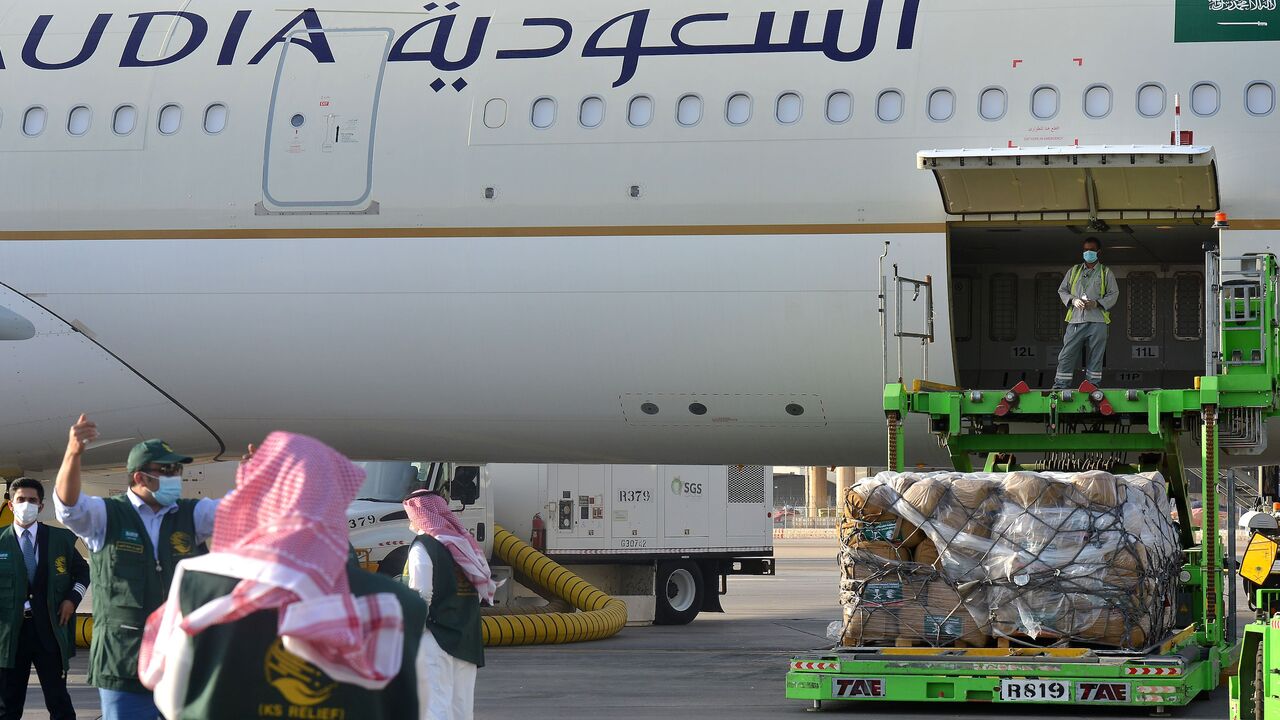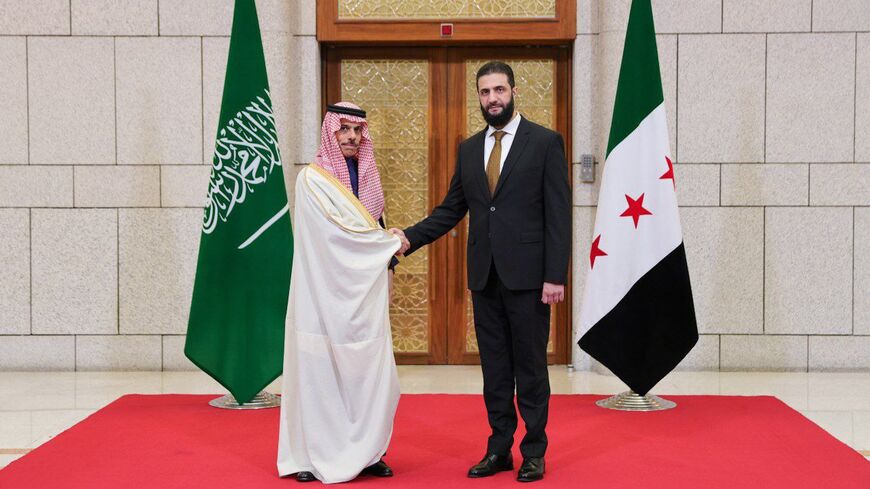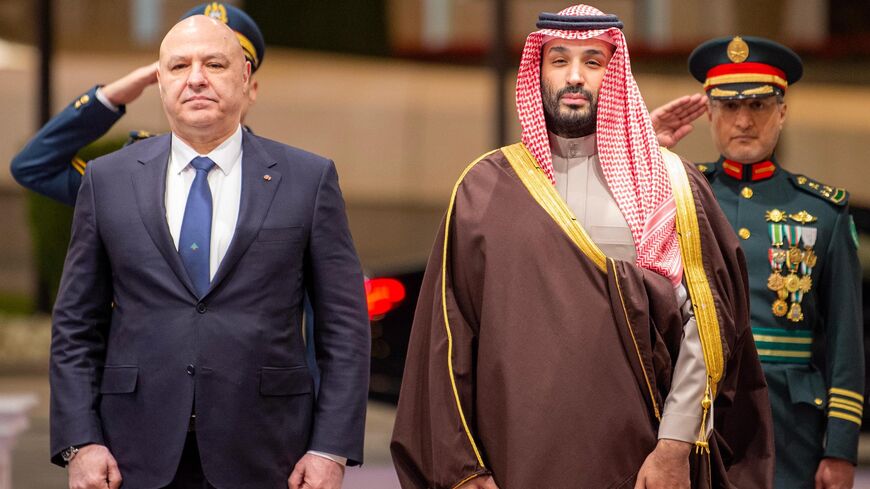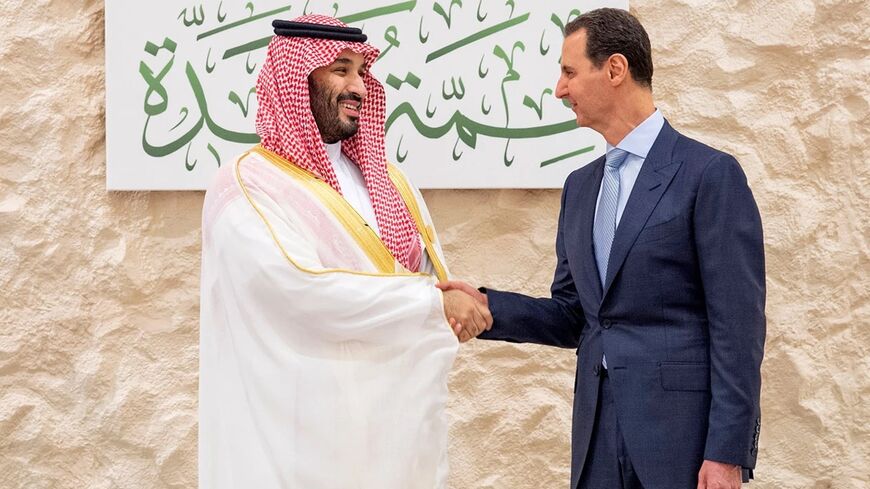After Qatar's $20M aid to army, Saudi relief agency grants $10M to Lebanon
Saudi Arabia is opening up to Lebanon following years of tensions over Hezbollah’s growing influence in the country.

BEIRUT — Saudi Arabia announced on Tuesday $10 million in financial contributions to Lebanon through the King Salman Humanitarian Aid and Relief Center (KSrelief) to implement dozens of projects in the small Mediterranean country, amid an improvement in Riyadh's ties with Beirut.
The Saudi ambassador in Lebanon, Waleed Bukhari, made the announcement from Beirut during the signing ceremony of a joint cooperation agreement between KSrelief and Lebanon’s High Relief Committee, a government agency in charge of supporting the needy across the country through foreign donations.
Speaking at the ceremony from the Grand Serail (the Government Palace), Bukhari said the $10 million grant will be used to implement 28 projects across Lebanon in various fields, the Lebanese state-run National News Agency (NNA) reported.
“This support reflects the commitment of the wise leadership of the Kingdom of Saudi Arabia, under the guidance of the Custodian of the Two Holy Mosques King Salman bin Abdulaziz Al Saud and Crown Prince Mohammed bin Salman bin Abdulaziz Al Saud, to humanitarian and relief work, ensuring stability and development in Lebanon, with the highest standards of transparency and accountability,” Bukhari said in a speech during the ceremony.
He said that since its establishment in 2015, KSrelief has carried out 129 humanitarian, relief and development projects in Lebanon in various sectors amounting to $2.7 billion.
“This support is a continuation of Saudi Arabia's solidarity with the Lebanese people, driven by the principles of genuine Arab brotherhood and the teachings of Islam,” he added.
مراسم توقيع اتفاقية التّعاون المُشترك بين #مركز_الملك_سلمان_للإغاثة والأعمال الإنسانية والهيئةِ العُليا للإغاثة اللبنانية لتنفيذِ نحو (٢٨) ثمانيةٍ وعشرين مشروعاً في المناطقِ اللبنانيةِ المختلفة.#السعودية#لبنان pic.twitter.com/cK49OpfO2A
— Waleed A. Bukhari (@bukhariwaleeed) July 2, 2024
Lebanese caretaker Prime Minister Najib Mikati, who attended Tuesday’s ceremony, praised the cooperation agreement, which he said reflects the kingdom’s commitment to the stability of Lebanon.
In his speech at the ceremony, Mikati also lauded Saudi Arabia’s “strong fraternal” relationship with Lebanon and its support for the country and its people.
“The kingdom has always been by Lebanon’s side … and has been the safety valve that preserved the unity of the Lebanese people, regardless of their sect or political affiliation,” he said, according to a cabinet statement.
Saudi Arabia, along with several other Gulf countries, have long been traditional partners of Lebanon. Riyadh, in particular, provided billions in aid to Beirut following the signing in 1989 of the Taif Accord in Saudi Arabia, which ended the Lebanese civil war.
But Gulf support has waned in recent years amid the rising influence of the Iran-backed Hezbollah group in the country.
In February 2016, Saudi Arabia suspended a $3 billion aid package to supply the Lebanese army with French-made weapons. Authorities at the time said the reason behind the move was Lebanon’s failure to condemn the attack against the Saudi Embassy in Tehran over the execution of a prominent Shiite cleric by the Gulf kingdom.
In March of the same year, the Gulf Cooperation Council (GCC) formally designated Hezbollah as a terrorist organization.
Ties continued to deteriorate, and in October 2021, several Gulf countries, including Saudi Arabia and the United Arab Emirates, recalled their ambassadors to Beirut following critical comments made by a former Lebanese minister who was close to Hezbollah on the Yemen war and the Saudi-led coalition.
Gulf rekindle ties with Lebanon
Lebanese-Gulf ties began improving after Saudi Arabia and Iran announced a breakthrough agreement brokered by China to restore their diplomatic ties in March 2023.
The UAE reopened its embassy in Beirut in October 2023 following a similar move by Saudi Arabia and Kuwait in 2022.
The thaw in relations was more noticeable following the 2019 financial crisis that hit Lebanon and, more recently, the cross-border hostilities between Israel and Hezbollah, as Gulf countries began pouring aid into Lebanon.
On Monday, the Lebanese army said it has received a new $20 million tranche of financial support from Qatar “as part of its ongoing support to the military institution in light of the current challenges.”
In a post on X, the army said the aid would be distributed equally among the soldiers.
Qatar’s Foreign Ministry announced in July 2022 a $60 million aid package to support the salaries of military personnel.
In May, the Emirates Red Crescent delivered unspecified quantities of medical aid to support the Lebanese health sector. Earlier in April, the Kuwait Red Crescent sent aid shipments consisting of foodstuffs and other basic necessities to around 2,500 families in south Lebanon affected by the ongoing confrontations along the border with Israel.
In April 2022, Saudi Arabia and France announced a joint development fund with an initial 30 million euros ($31.9 million) in funding to launch humanitarian projects in crisis-hit Lebanon.
In another sign of thawing relations, Arab League Assistant Secretary-General Hossam Zaki said on Monday that the organization had dropped the terror classification of Hezbollah in May 2023. In statements to local media, Zaki said the move has allowed communication between the paramilitary group and the Arab League.
Hezbollah has been engaged in heavy cross-border fire with Israel since the Israeli war in Gaza broke out last October. Fears of an all-out war in Lebanon have risen in recent weeks as tensions between Hezbollah and Israel mount.







